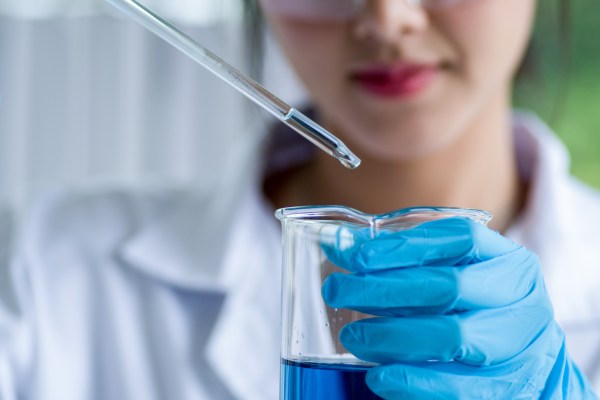While the world fixates on text-, image- and movie-generating AI, a startup headed by a former DeepMind senior researcher is developing GenAI tech to support the manufacturing of new physical materials.
Orbital Materials — founded by Jonathan Godwin, who previously was involved with DeepMind’s material research efforts — is creating an AI-powered platform that can be used to discover materials ranging from batteries to carbon dioxide-capturing cells.
Godwin says he was inspired to found Orbital Materials by seeing how the techniques underpinning AI systems like AlphaFold, DeepMind’s AI that can predict a protein’s 3D structure from its amino acid sequence, could be applied to the materials sciences.
“Traditional methods of discovering new materials have long relied on time-consuming trial and error processes in the lab, often resulting in years of experimentation before success is achieved,” Godwin told TechCrunch in an email interview. “I felt that a new type of organization — one with AI experts as well as materials-scientists — was needed to bring materials out of the computer into the real world.”
AI-assisted or no, crafting a new material isn’t usually a very intuitive process.
Achieving certain properties — say, lightweightness and rigidity — requires identifying the corresponding physical and chemical structures, as well as figuring out the processes (e.g. melting, evaporating) to reliably create the structures. The material, once devised, then must be stress-tested in different conditions — extreme temperatures, for example — depending on its intended application.
AI can’t solve for all the challenges inherent in materials design. (There’s no substitute for real-world experimentation, for one.) But it can save time — and money — by leaning on computations to map out which properties and processes might yield which types of materials.
“Technical decision-makers at chemistry and materials companies struggle to develop new products because traditional methods of discovering new advanced materials are too slow and expensive to meet this demand,” Godwin said. “[Yet] demand for new advanced materials … is growing hugely as our economies become electrified and de-carbonized.”
Orbital Materials isn’t the first to apply AI to materials R&D.
Osmium AI, led by an ex-Googler and backed by Y Combinator, enables industrial customers to predict the physical properties of new materials, then refine and optimize those new materials leveraging AI. Several academic papers over the past decade propose ways of speeding up material design workflows through AI in tandem with vast databases of molecules. DeepMind itself is investigating AI-originated materials, last year announcing that it devised an algorithm to discover millions of crystals that could someday power commercial technologies.
But what sets Orbital Materials apart is its proprietary AI model for materials science, Godwin claims.
“We’ve taken a lot of inspiration from the successes of large language models and AlphaFold in building our data sets,” Godwin said. “In these models, the really important thing is to get lots of different types of data: models like ChatGPT are trained on code, news articles, scientific text and encyclopedias. This diversity is one of the things that gives the models their remarkable capabilities.”
Orbital’s model, called Linus, serves as the backbone of the startup’s lab in New Jersey, where it’s driving materials and chemical research and development. Linus was trained on a large dataset of simulations and materials, Godwin says — from batteries and semiconductors to catalysts and organic molecules.
Scientists using Linus enter natural language instructions — e.g. “a material that has a good absorption for carbon dioxide” — and the system generates a 3D molecular structure that meets the criteria. Starting with a random cloud of atoms, Linus iteratively refines the structure until landing on something that best satisfies the instructions.
“[We’re] taking a full-stack AI approach to developing a pipeline of materials in house,” Godwin continued.
Like all GenAI, Linus isn’t perfect — it sometimes generates materials that aren’t physically possible to manufacture. But Godwin claims it has successfully developed at least one — a cheap, more reliable filter for capturing carbon dioxide from the air. Orbital plans to announce more details this year.
Orbital, based in London with a team of 13 people, doesn’t plan to manufacture the filter itself — or any other materials for that matter. Rather, the goal is to bring materials to the proof of concept or pilot demonstration phase and then seek outside manufacturers as partners.
To help get there, Orbital recently raised $16 million in a Series A round led by Radical Ventures with participation from Toyota Ventures. Bringing the startup’s total raised to ~$21 million, Godwin says that the new capital will be put toward expanding Orbital’s data science and wet lab teams.
“Just like AlphaFold is enabling new drugs to be discovered and brought to market faster, Orbital Materials’ technology is enabling new advanced materials to be designed and commercialized at unprecedented speed,” Godwin said.
